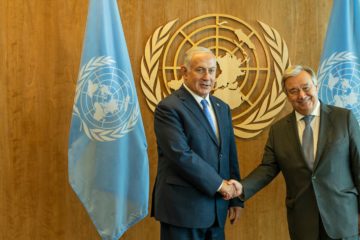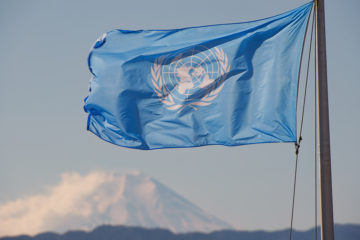What if We Talked about Foreign Policy? Italy’s Opportunities for Global Leadership in 2021
After the Cold War and the fall of the First Italian Republic, Italy struggled to formulate a coherent foreign policy strategy. Generally, foreign policies at global level during the Cold War era were dictated by the bipolar relationship between the United States and the Soviet Union. Italian foreign policy, therefore, was a function of the United States’ sphere of influence and interests, and Italy was often a bridge and interlocutor for the Americans to the Middle East or Eastern Europe. With the collapse of the bipolar system and the disintegration of the major Italian political parties that were the core political actors in the aftermath of World War Two, Italian foreign policy was partially dictated by individual figures and was …

‘Uniting for Peace’ Against Israel’s Annexation Plan
With the diversion of Israel’s military resources towards West Bank, Israeli annexation of occupied Palestinian territory appears imminent, pending approval from and coordination with the American administration. Struggling to rally right-wing voters amidst the fight for his political survival in the elections of April, September 2019 and March 2020, Prime Minister Benjamin Netanyahu had stated that he would “apply Israeli sovereignty” over the West Bank, if re-elected. Bolstered by the reversal of decades of American policy on the issue and the subsequent release of Trump’s much criticized, one-sided ‘Middle East Peace Plan’ in January 2020, Netanyahu has aggressively pursued the annexation agenda with the emergency government formed with Benny Gantz in March 2020. Considering the expected blockage of the Security …

Book Review: Richard Caplan’s “Measuring Peace: Principles, Practices and Politics”
In Measuring Peace, Professor Richard Caplan of the University of Oxford has written an insightful guide for students and practitioners of peace. The book will help those who want to understand the fundamental principles and existing practices of how to assess peace while at the same time outlining some critical political constraints. Caplan provides a succinct and clear analysis of key approaches to peace measurements, their weaknesses and ways to move forward. Due to its accessibility and policy relevance, the book also stands out among other publications that have sought to evaluate and grapple with the question of how to judge the quality of existing peace. The key aim of the book is to give peacebuilders a ‘compass’ to navigate the post-war peace …

How effective is UN peacekeeping?
Peacekeeping is at the centre of the UN’s efforts to maintain international peace and security. Today, more than 100,000 soldiers and police from 125 countries are serving as blue-helmeted UN peacekeepers around the world. These soldiers and police are endeavouring to keep the peace within, or between, more than 20 conflict-affected states and territories. How effective are UN peacekeeping efforts? There have been spectacular failures (Rwanda) and notable successes (El Salvador) but how great is the contribution of UN peacekeeping overall? Scholars are divided on this question. Virginia Page Fortna’s seminal work on the impact of UN peacekeeping operations (UNPKOs) suggests that the presence of UNPKOs significantly improves the chances of peace surviving following the cessation of hostilities. In the …









